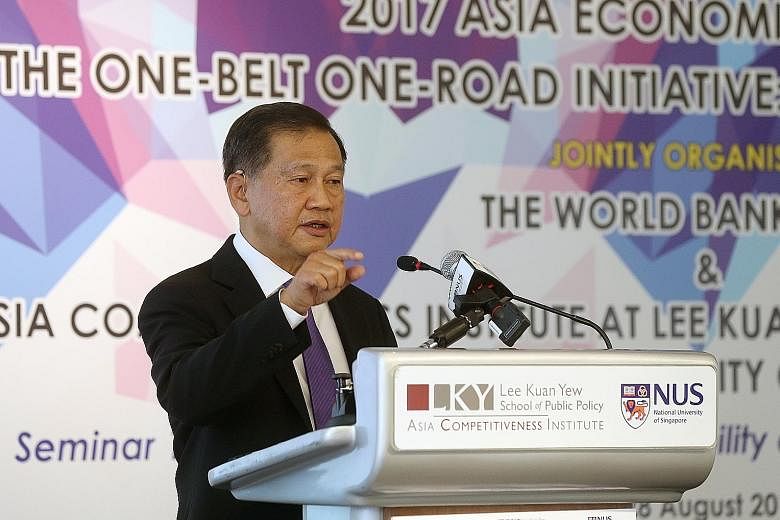Singapore companies keen to tap opportunities in Belt and Road countries "must act fast to secure our first-mover advantage", said Mr Liew Mun Leong, the chairman of Changi Airport Group and Surbana Jurong Group.
While the projects on offer might be too huge for small and medium-sized enterprises (SMEs) to take on alone, Singapore firms can come together to form consortiums, the former CapitaLand chief executive added.
Mr Liew was speaking yesterday at this year's Asia Economic Forum, co-organised by the World Bank Group and the Asia Competitiveness Institute at the Lee Kuan Yew School of Public Policy (LKYSPP) at the National University of Singapore.
The forum focused on the impact and implications of China's Belt and Road Initiative (BRI), which calls for massive development of trade routes and infrastructure across 60 countries, mainly in Asia and Europe.
Mr Liew, who is provost's chair and practice professor at LKYSPP, said the BRI could be the sole remaining locomotive propelling global growth in the coming years as other efforts to lift trade, such as the Trans-Pacific Partnership, have run into roadblocks.
Besides infrastructure, there will also be opportunities for Singapore firms to provide services in BRI countries - including in development consultancy, IT, logistics and financial services, he noted. "We must be prepared to enter into international collaboration... to address BRI market demand," he said.
SMEs can also tap these opportunities, said Mr Liew.
"In terms of infrastructure development, the fact is that many of these are mega projects, which can be handled only by big developers... But small companies can join a consortium to participate," he said.
In response to a question about dealing with poor corporate governance and corruption when doing business in China, Mr Liew said his approach is to make sure business partners understand that "under the table" deals are out of the question.
"For a company going to China, it is not sustainable to pay bribes if you want to be there for the long term. You will get caught, they will get caught," said Mr Liew, who has been doing business in China for more than two decades.


